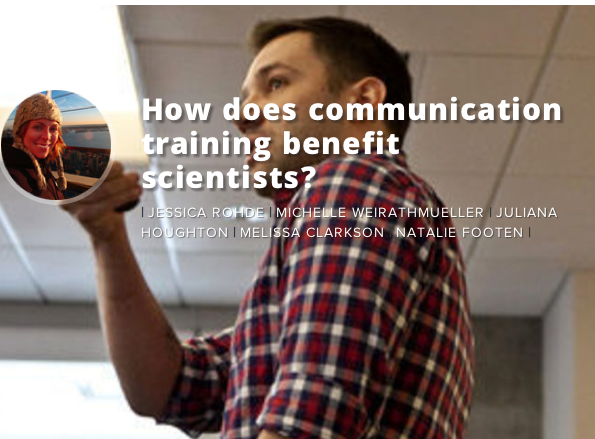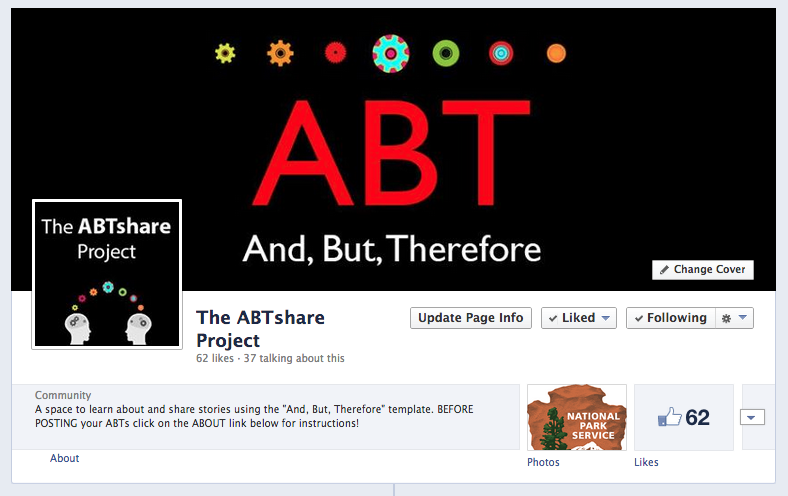#340) Science Communication Rebellion in Seattle!
February 19th, 2014
It’s a generational thing. I’ve seen it for years now. The old farts just don’t get it. So a group of grad students at Univ. of Washington have decided to take things into their own hands. YAY! This is what I admire — INITIATIVE! Here’s their crowdfunding link. I gave them some bucks, you should, too!
FUND THIS! FUND THIS! FUND THIS! Come on, a few bucks will go a long ways with this group. This is REAL communications training.
YOU SAY YOU WANT A REVOLUTION …
I have a good friend at AAAS who says to me all the time, “We are going to win this communications struggle one retirement at a time.”
Now a group of grad students at U.W. have decided they can’t afford to wait for the retirements. They have organized themselves and launched a small crowdfunding project to support their Engage Program to improve their communications training.
Of course I’ve been seeing this pattern for years with every one of my university visits — eager eyes and ears from the graduate students who are all fluent in Facebook and Twitter, but a majority of faculty who don’t come to my talks and think I’m a public nuisance.
It’s no surprise to me. I’ve been to the mountain top — the leadership is lacking — you really do need to take things into your own hands if you want to do interesting things.
So a HUGE thumbs up to these folks. I spoke last week with Jessica Rohde, one of the organizers. Just to prove she has good communication skills (which means knowing the proper “channels” of communication to use with a specific audience) she put their message into the language of our Connection Storymaking Workshop (which, btw, we’re running this weekend at the Ocean Sciences Meeting in Hawaii!).
Here’s their overall agenda in the WSP form (though the paragraph doesn’t really use the Logline Maker template which just means they need us to come to town soon and run our workshop!).
Word: Rebellion
Sentence: Science graduate students want communication training AND in today’s world they need it, BUT institutions don’t provide it and advisors think it’s a waste of time, THEREFORE to convince them that it’s not, we’re quantifying the ways that communication training benefits scientists.
Paragraph: Today’s science grad students crave communication training. They know that if they want their work to impact society, they need to be able to explain its importance to decision makers and the public. But the demand for training in science communication far surpasses the supply. There are two major roadblocks: most institutions don’t offer communication training, and even when they do, faculty prefer their students to stick to research, seeing such training as a waste of time. At the University of Washington, a group of frustrated and ambitious grad students decided to stop waiting. Without any funding or support, they created their own science communication training program called Engage. They were hugely successful. Four years later, all Engage students give public talks on their research at Town Hall, and the UW has endorsed the program and provided funding.
Now, it’s time to scale up. The Engage Program wants to help the many grad students who are still waiting for their institutions to supply what they demand, and waiting for their advisors to see the value of communication training. To convince the institutions we will have to speak their language. We want quantify how communication training has made Engage students better scientists—their writing and speaking ability, collaborations across disciplines, and leadership opportunities—and give grad students the leverage they need to change the system. We’re crowdfunding this research at microryza.com/engage. Join the rebellion–donate what you can, $5 or $500, and give these ambitious young scientists a platform and megaphone to demand their communication training.
If you haven’t yet, be sure to check out our #ABTshare Project at facebook.com/ABTshare!

